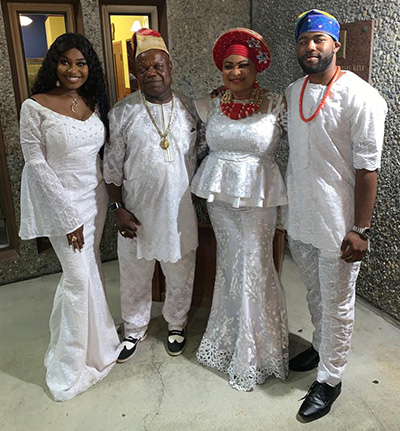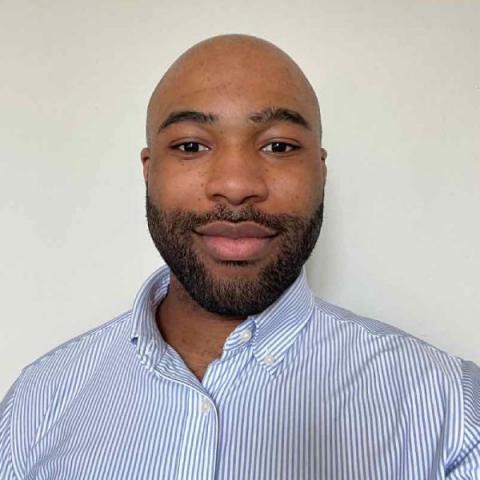Amalawa Aiwekhoe named 2022 DEOHS Outstanding Undergraduate Student
A few months after earning his BS in Environmental Health, Amalawa Aiwekhoe landed his first big job as an occupational health and safety specialist at Boeing.
He describes his new job as “a guardian of all workers,” particularly people like custodians and others in lower-wage jobs who traditionally don’t have as much of a voice in the workplace.
On any given day, that may mean preventing or monitoring worker exposures to chemicals, addressing physical hazards that could cause falls from great heights or responding to concerns of custodial staff about ergonomic injuries.
“Your end goal is to protect the worker and to create a zero-injury workplace. That gets me to work at 6 am every day … because I want to be there for them,” he said.
Aiwekhoe is being honored as the 2022 Outstanding Undergraduate Student by the UW Department of Environmental & Occupational Health Sciences (DEOHS).
“As a first-generation American with parents and family members who work in high-risk occupations, Amalawa has a keen interest in improving worker health and safety and targeting disparities and inequality,” said Tania Busch Isaksen, DEOHS associate teaching professor and the undergraduate program coordinator.
“We are very proud to have him in our DEOHS community and look forward to celebrating his future accomplishments,” she said.
Discovering hands-on science

Aiwekhoe grew up in Everett, WA, the son of “tiger-ish parents” who immigrated from Nigeria to give their children better educational opportunities. His parents “raised me with pride in myself and my culture,” he said. “They wanted me to succeed.”
His father owned his own construction company, but the business suffered after the 2009 market crash. His father returned for a time to Nigeria to support his family, and Aiwekhoe remembers times were tough for the family.
In a 7th grade science class, Aiwekhoe picked up an illustrated book called "Elements: A Visual Exploration of Every Known Atom in the Universe" and discovered his love of chemistry.
By high school, he was taking honors chemistry and other science classes, and he enrolled in Running Start his senior year, earning college credits from Edmonds Community College.
“I had started to realize that I didn’t like straight chemistry, but rather the application of it,” he said. He entered the UW knowing he wanted to pursue hands-on science, something that would allow him to connect the dots between lab science and helping “real people in real situations.”
“You really feel like you can do anything”
In DEOHS, Aiwekhoe found his “just right” fit.
“The department isn’t too big, but it has really strong programs that are tied into the needs of communities in the Pacific Northwest,” he said.
The DEOHS Office of Academic Services showed him how all his classes would be laid out, and the open major allowed him to focus on his studies rather than acceptance rates.
“Every single DEOHS class I've taken, I don’t think there’s one that I haven’t used at least once” on the job, he said. “I feel like I’ll never be out of options. With the degree, you really feel like you can do anything.”
Helping workers come home safely
.jpg)
During his undergraduate program, Aiwekhoe served as co-chair of the Student Environmental Health Association, helping to organize employer info sessions, study breaks and an alumni mentoring program.
He also completed two internships. One was with a private environmental services company where he treated and monitored stormwater runoff.
The second was with Boeing defense services. He sampled and monitored noise exposure levels and worker exposure to hexavalent chromium—chemical compounds used in industrial processes—among aircraft riveters and other employees.
"That hands-on experience really made a difference when looking for a job,” he said.
Aiwekhoe was accepted into the DEOHS Applied MS program in Occupational Hygiene for this fall, but he is deferring for a year to get more work experience.
“The work pays well, the work-life balance is solid and the work you are doing is meaningful,” he said. “I love what I do because I am able to help workers like my father come home safe to their families.”
Aiwekhoe received funding support from the Washington State Opportunity Scholarship and other sources.

